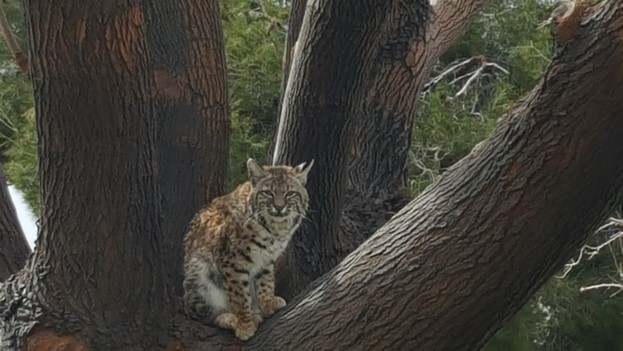
Reports are increasing of wildlife becoming comfortable around people and facilities. Bobcats, naturally wary of humans, can become problematic when they lose their fear. Here's how to prevent issues:
Never feed wildlife:
- Feeding squirrels, birds and other animals attracts bobcats and coyotes.
- Feeding contributes to the spread of disease among animals concentrated in feeding areas.
- Human food is not a natural food source and can harm wildlife.
- Wildlife may lose their natural wariness of humans, become destructive and compromise public safety.
- It's illegal. Violators may be cited under California Code of Regulations Title 14, Sections 251.1 and 251.3
Remove Potential Food Sources:
- Keep pet food and water indoors.
- Bird feeders attract rodents, which in turn attract bobcats and other predators.
Remove Cover:
- Keep shrubs and grass trimmed to reduce hiding places.
Remove Water Sources:
- This includes water bowls, leaky pipes and broken sprinklers.
Bobcats are important to the health and biodiversity of ecosystems. As native California species, they fill a niche within their wildlife community, preying on rodents and other small mammals, which helps maintain plant diversity.
Encountering a Bobcat:
To encourage a bobcat to leave:
- Make loud noises (yell, bang pots, use an air horn, etc.).
- Spray with a garden hose.
In an emergency:
- Back away slowly and deliberately.
- Never corner an animal or get between it and its young.
- Avoid running, which may trigger a chase response.
- Call 911 if there is an immediate threat to human life.
- Avoid the area and stay indoors.
Help keep nature in balance by preventing wildlife from becoming habituated.
For more information, contact the Environmental Management Division at 661-277-1401, extension 3, or 412CEG.CEVA.NaturalResources@us.af.mil.